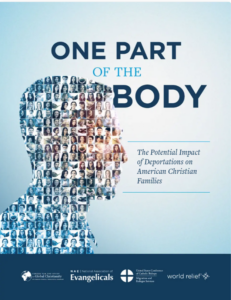
NASHVILLE, Tenn. (BP)–The replacement of religion with secularization in American universities has left students unable to make sense of the world in which they live, a retired history professor from the University of Florida says in a new book.
“The secular university is increasingly marginal to American society,” C. John Sommerville writes in “The Decline of the Secular University” released by Oxford University Press.
Higher education once was dominated by religious guidance that gave students valuable insight into the nature of humanity, its distinctiveness from other life forms and the basis of morality, Sommerville writes, but that has given way to a commitment to political correctness that fails “to connect with people’s most urgent questions.”
Peter Steinfels examined the book in The New York Times July 8, noting that Sommerville says universities have lost significant influence as students today are turning to popular culture, talk show pundits and bloggers for answers to their deepest questions.
Terms like justice, freedom, truth, responsibility, sanity, purpose, evil and human rights are still used in secular universities, Sommerville notes, but none of them can be sufficiently understood apart from religion.
Sommerville’s goal, as Steinfels put it, is to invite “religious voices into the discussion” on university campuses and allow religiously committed scholars “to be themselves in their academic roles.”
In the book, Sommerville considers that many university programs teach students how to make money, but very few offer to help students learn how to spend their money.
Steinfels, The Times writer, mentioned surveys from the Higher Education Research Institute at UCLA that show 80 percent of college faculty claim they are “spiritual persons” to some degree but only 30 percent believe that universities should help with students’ “spiritual development.” The studies also showed that many students wouldn’t mind discussing the purpose of life and spiritual matters.
“Clearly, there is a gap between what undergraduate students are looking for and what professors, regardless of their religious convictions, feel they can or should try to provide,” Steinfels wrote.
CONGRESS HUNTS CHILD PREDATORS — All it took was the graphic testimony of a 19-year-old victim of the online child pornography industry for Congress to step up its efforts at busting criminals by alerting prosecutors to the names of hundreds of people who purchased illegal images.
The Oversight and Investigations Subcommittee of the House Energy and Commerce Committee has referred a list of names, credit card information and identifying details of the computers used to purchase memberships at child porn websites to attorneys general in 46 states, according to The New York Times.
The Times first broke the story of Justin Berry last December, detailing how he quickly became ensnared in the child porn industry starting at age 13. Berry then was a key witness at congressional hearings on the industry and has been cooperating with Justice Department officials in pursuing the 1,500 people who subscribed to the websites he ran, The Times reported July 14.
A letter from two House members on the subcommittee told state prosecutors they are welcome to “further investigate and analyze the information set forth in these documents,” according to The Times, and more than a dozen attorneys general already have expressed intentions to pursue the cases in their states.
Among the initial arrests resulting from Berry’s testimony was a Virginia man sentenced to 150 years in prison July 14 for operating child pornography websites.
SCRATCH-OFF TICKETS GAIN POPULARITY — Scratch-off lottery tickets now account for 55 percent of lottery revenue after outselling traditional lotteries since 2004, USA Today reported in late June.
The tickets cost more — $10, $20 or $30 — but provide instant gratification with winnings of $1 million or more, thus making them more attractive to lottery players who don’t want to wait for a drawing to know if they’ll receive money.
“People like big prizes, and they want to know immediately if they’ve won,” Bobby Heith of the Texas Lottery told USA Today.
Scratch-off ticket sales grew by 59 percent from 2001 to 2005, six times as much as the increase for Powerball, Mega Millions and other traditional games during that time, USA Today said.
While no research has been done on who is purchasing the bulk of the high-priced tickets, some say the scratch-off frenzy likely harms the lower class.
“The poor spend more of their income on lotteries, so it’s likely they’ll be hurt by expanding this regressive, deceptive way of raising money,” Alicia Hansen of the Tax Foundation, a research group, told USA Today.
In other gambling news, online gambling facilitators in Europe are nervous after the U.S. government arrested the chief executive of a British bookmaking company July 17 for soliciting Americans.
The House of Representatives last week passed a bill prohibiting Internet gambling sites from knowingly accepting money from U.S. citizens, The New York Times reported.
Online betting, though illegal in America, has grown to a $12 billion industry and is expected to double in size again by 2010, The Times said.
“This is clearly sending a message that Washington is paying attention,” Sebastian Sinclair, president of Christiansen Capital Advisors, an industry research company, told The Times about the crackdown.
As a result, stock prices of the online betting industry’s most prominent names fell sharply in London over concerns that the sting may spread.
RALPH REED LOSES BID FOR OFFICE — Ties with corrupt lobbyist Jack Abramoff may have been Ralph Reed’s downfall in his attempt to win the Republican nomination for lieutenant governor of Georgia.
Though he led in the polls leading up to the primary, Reed was defeated July 18 by state Sen. Casey Cagle, who took 56 percent of the vote with more than 92 percent of precincts reporting July 19.
Reed, the former director of the Christian Coalition and former leader of the Georgia Republican Party, could not escape his history with Abramoff, the lobbyist who pleaded guilty to charges of fraud, tax evasion and bribery. Abramoff had arranged for Reed to be paid $5.3 million by Indian tribes that ran casinos in exchange for coordinating anti-gambling campaigns against competing casinos, The New York Times said, though Reed said he did not know the source of the money he received.
“Tonight my candidacy for lieutenant governor comes to an end, but the ideas for which I stood, the values for which you have fought, and the governing philosophy that we believe in will go on, and it will go on to victory,” Reed said in his concession speech.
–30–














